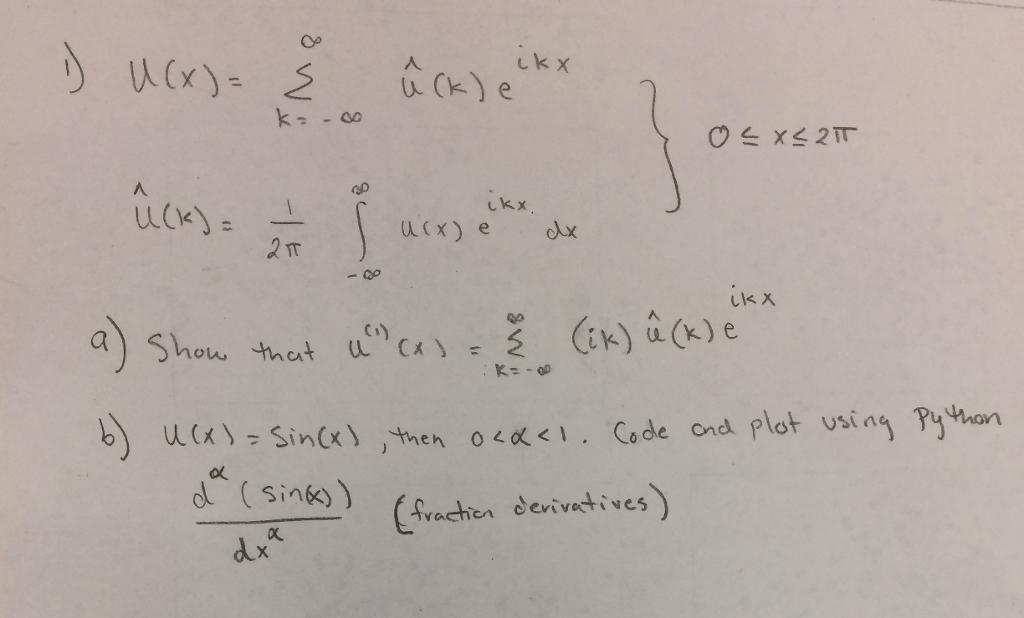Answered step by step
Verified Expert Solution
Question
1 Approved Answer
U(x) = Sigma^infinity_k = -infinity u^(k) e^i k x U^(k) = 1/2 pi integral^infinity_infinity u(x) e^I k x dx} 0 lessthanorequalto x lessthanorequalto 2 pi

Step by Step Solution
There are 3 Steps involved in it
Step: 1

Get Instant Access to Expert-Tailored Solutions
See step-by-step solutions with expert insights and AI powered tools for academic success
Step: 2

Step: 3

Ace Your Homework with AI
Get the answers you need in no time with our AI-driven, step-by-step assistance
Get Started


